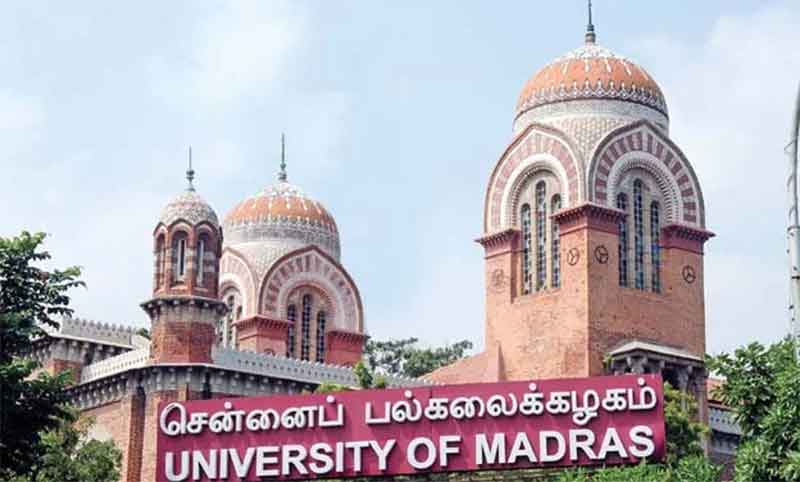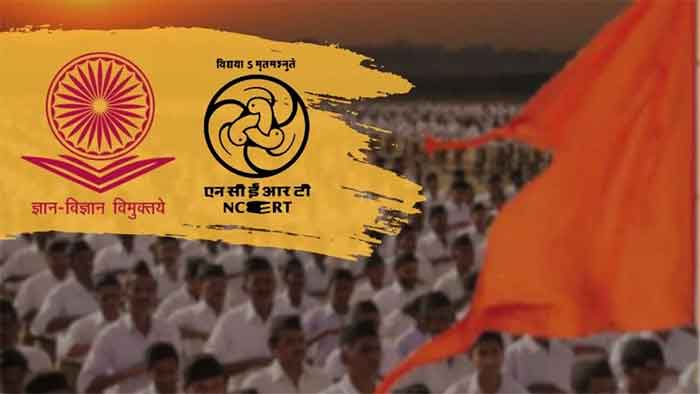
‘You may burn my books and the books of the best minds in Europe, but the ideas those books contain have passed through millions of channels and will go on.'”
Helen Keller, An Open Letter to German Students
‘Fahrenheit 451’
It was the name of a movie which had appeared in mid-sixties. ( 1966)
The only English movie directed by renowned French director Truffaut, it did not receive the attention it deserved then. Based on a dystopian novel by the same name (1951) penned by famous American author Ray Bradbury, it presents a future where books are outlawed and firemen burn any that are found. Fahrenheit 451 is supposed to be the temperature at which a book burns.
It was written in the backdrop of the growing anti-communist hysteria in the USA after second world war, when senator McCarthy was leading witch-hunt against communists and other anti-establishment people, when too many people were afraid of their own shadows.
Times have definitely changed.
Today you cannot have a replay of campaigns like Nazi book burnings, organised in the 30s , or a threat of book burning, when many books were being taken off the shelves during the infamous McCarthy era but one finds that the powers that be have thought of ingenious ways to stop people reading books.
The recent order by the department of education in Britain needs to be looked at in that context. It has ordered schools in England to stop using resources from groups and organisations which have expressed desire to end capitalism. For it, anti-capitalism is an “extreme political stance” and can be equated with ‘ opposition to freedom of speech, anti-Semitism and endorsement of illegal activity.’ (https://www.theguardian.com/education/2020/sep/27/uk-schools-told-not-to-use-anti-capitalist-material-in-teaching)
The bigwigs in the government must have thought about it thoroughly before issuing the order and must be well aware of its import. Perhaps it would be opportune to share a few possibilities.
This order effectively makes it illegal even to refer a significant sections of Britain’s own history as well as politics – which involves the once powerful forces of socialism, Labour party as well as trade union struggle – in the curricula, because in their long journey they have talked of moving beyond capitalism or ending capitalism.
This move effectively bans the great British writers like Thomas Paine, Iris Murdoch, William Morris from the curricula because in their writings you can always decipher anti-capitalism or the urge to underline that profit cannot be the ultimate goal of humanity.
The absurdity of this decision has been noted by teachers as well as concerned citizens.
A teacher who is ‘irreligious’ but teaches in a Catholic School posed an interesting question in a letters to editor column. ‘When teaching philosophy, do I need to be concerned that Plato’s Republic seems to advocate a state-controlled, non-capitalist economy?’ ( https://www.theguardian.com/education/2020/sep/30/anti-capitalist-guidance-for-schools-is-ludicrous)
As expected this decision by the Conservative government has received widespread condemnation. and is being seen as symbolising growing “authoritarianism” within the governing Conservative party –
The decision is shocking but not at all surprising.
The conservatives have always remained sceptical of the cherished values of democracy and free speech and with their loosening control over the narrative, because of their inept response in the Covid pandemic, Brexit tactics as well as government spending; perhaps they have concluded that it is the opportune time to strike in an unexpected direction.
The easiest way before them seems to be unleashing a culture war of sorts to stand up for ‘British values’ and win back dwindling support which will definitely help distract people’s attention from the serious problems they are experiencing on a daily basis.
One can easily see that their sudden concern over “extreme political stance” is basically a facade to unleash this culture war, with which they wish to target individuals, institutions who challenge status quo. The famous left wing British Columnist Owen Jones , in one of his columns underlines that for the Tories Hungary under Orban is an example to emulate. Perhaps a ‘plausible future’ for Britain awaits there.
According to him Hungary still maintains the trappings of democracy, elections do take place, opposition still exists, but the rulers are pushing their ultra nationalist agenda with impunity, where favoured instrument is the “culture war” which involves stigmatising the migrants or using the pandemic to curtail trans rights. The suddenness with which they rewrote school curriculum was unbelievable ( https://uk.reuters.com/article/us-hungary-politics-teachers-protests/hungarian-teachers-say-new-school-curriculum-pushes-nationalist-ideology-idUSKBN1ZY28Y) which promoted the nationalist agenda and curbed academic freedoms.
The culture war in this part of South Asia – earlier part of the vast British empire – is unfolding with a similar dynamic but in a much more comprehensive manner, where neighbouring Pakistan is decisively on the path of Arabisation whereas India is inching towards RSS inspired Hindu Rashtra.
What is relevant for present discussion is the changes they have unleashed in the field of education. For example, reports have appeared in a section of the press about Pakistan’s new education policy which aims to ‘create a religion based society’
Writing about the proposed changes Prof Pervez Hoodbhoy, who teaches Physics in Lahore and Islamabad and is a well-known human rights activist wrote about them in his regular column ( https://www.dawn.com/news/1573256/pak-india-education-compared). According to him here are few of its significant aspects :
– It aims at putting Madressahs and other schools at the same level.
– It also makes it possible that representatives of Ittehad Tanzimat-i-Madaris (Coalition of Madressah Organisers) will decide what Pakistani children will learn and they will also scrutinise their textbooks.
– Religious materials would be mandatory from nursery classes onward. The class 1-5 curriculum reveals much more religious content to be memorised than even madressahs require. This immediately entails discrimination. Since study from the Holy Book is out of bounds for non-Muslim students, they would be separated.
– Proposal to link all University Degrees in Punjab with studying the Holy Quran with translation.
One can just imagine putting Madersaah and other schools at the same level or giving carte blanche to religious scholars to scrutinise textbooks and about its possible impact on children.
Whether it would be qualitatively any different than the young Nazi arsonists who targeted books for their subversiveness or their being representing ideologies opposed to Nazism which included books written by a diverse range of scholars – Jewish, pacifist, religious, liberal, anarchist, socialist, communist, and sexologist authors among others
No doubt, the idea that modern education can be brought onto same page as Madersaah is highly problematic because whereas critical thinking is the basis of Modern Education, no such basis exists in Madressah education. It only seeks more religiously observant student and a better life after death. It is clear that critical thinking is unwelcome.
Close watchers of Pakistan’s education system vouch that these changes go beyond what even Gen Zia Ul Haq – who put Pakistan decisively on the Islamisation path – had ever envisaged.
Analysts tell us that Imran Khan, won with a promise that he wants Pakistan to usher into what he calls the ‘Golden Age of Medina’. One can see how this idea of ‘Golden Past’ has fascinated articulate sections of the ‘arch rival’ country namely India as well.
Present rulers of this biggest democracy similarly want us to usher into a Ram Rajya – their own version of Hindu Rashtra.
If the Conservatives in UK have drafted a plan to invisiblise a part of its own history from students and youth, their counterparts here engaged in further communal consciousness of history by revising the textbooks to introduce a communal view of the past, highlighting the achievements and contribution of the Hindus and undermining or misrepresenting the role of others. Prof K N Pannikar had talked about this modus operandi in one of his speeches quite some time back. (http://web.archive.org/web/20060109123200/http://www.stanford.edu/group/sia
/Events/Panikkar_speech.pdf)
Of course, an added effort this time has been to present before the people a ‘manufactured history’ itself.
The present dispensation at the centre has even appointed a committee to ‘put a seal on this “Hindu first” version of history’. The said panel referred to as the committee for “holistic study of origin and evolution of Indian culture since 12,000 years before present and its interface with other countries of the world” ( Page 63, Religious Nationalism, Ram Puniyani, Media House 2020). The whole idea behind the formation of this ‘expert committee’ seems to be that the government is solely worried about furthering its Hindu triumphalist agenda and is not at all bothered about the latest theories about when the first humans appeared in the Indian subcontinent. (See, Tony Joseph, ‘Early Indians’ 2018, Juggernaut)
During last six years and a half the arena of education has been kept on the boil.
Gone are the days when University was hailed as ‘a place of teaching universal knowledge’ ( John Newman, ‘The Idea of University, https://www.bartleby.com/28/2.html). Situation is such that Universities and academic institutions as places where free flow of ideas and exchange is possible have started looking illusionary. Perhaps it is for the first time in independent India’s history that we have been witness to such a phenomenon where there is increasing stigmatisation of students and teachers who are ready to raise questions.
Whether books – which act as repositories of knowledge, which stimulate people to think – can survive this onslaught?
Perhaps the last scene in the film ‘Fahrenheit 451’ provides an answer.
The central character of the film fireman Guy Montag, who is happily engaged in burning books has a rethink over what he is doing and runs away to the countryside where he meets the Book People, a large community of ordinary citizens, who have individually memorised books to keep them ‘alive’.
Guy Montag also selects a book to memorise and becomes one of the book people.
Subhash Gatade is an independent journalist
SIGN UP FOR COUNTERCURRENTS DAILY NEWSLETTER















































